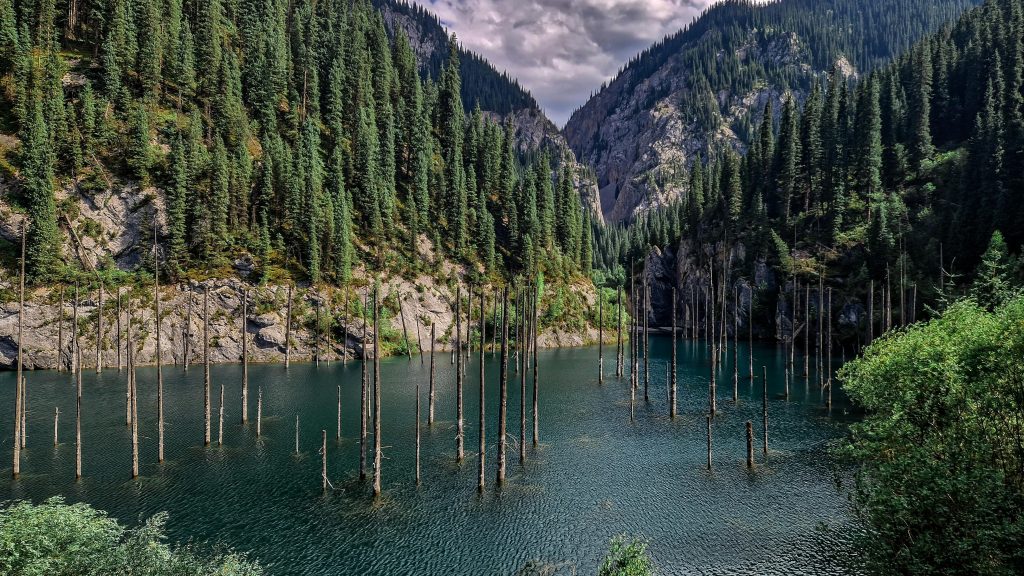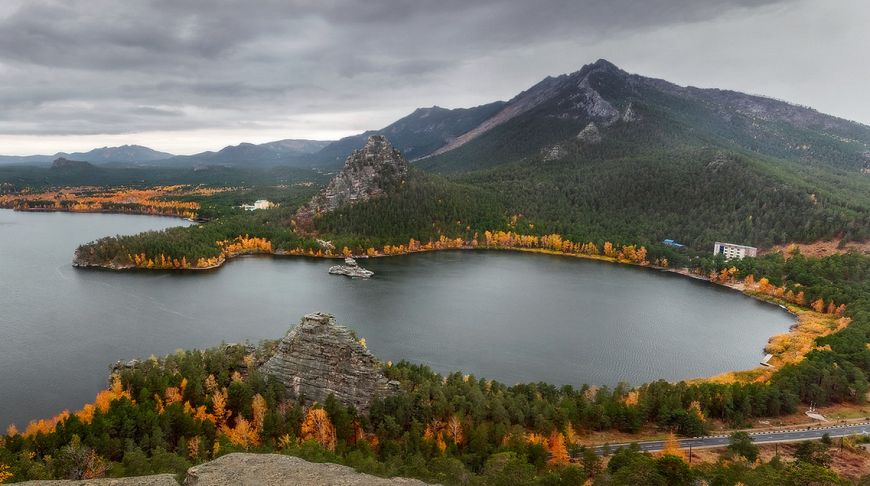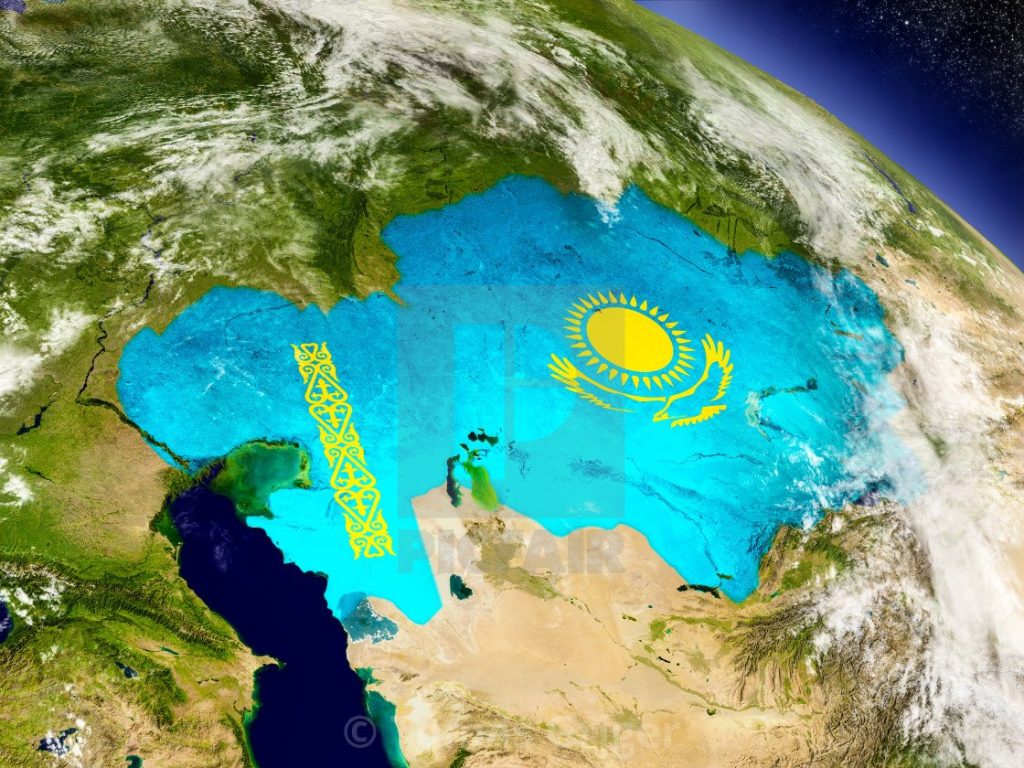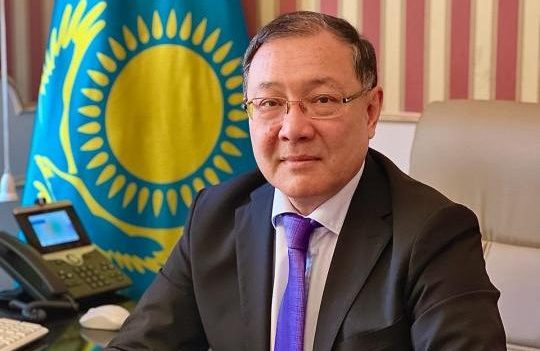Interview with H.E. Amb. Ali Yerlik, Ambassador of Kazakhstan to Romania
Liviu Mureșan: Your Excellency, congratulations on the success of the Kazakhstan Presidency to the Shanghai Cooperation Organisation, which represents 3 billion people, more than 60% of the entire population of Eurasia. Kazakhstan has demonstrated its position as “middle power” with balanced relations with the “big powers”, with pragmatic foreign policy and foreign trade in full development.
Your Excellency, Mr. Ambassador Ali Yerlik, I would like to ask you a specific question – what has been accomplished during your tenure in Romania since April 2023, and what are the prospects for bilateral cooperation?
Amb. H.E. Ali Yerlik: Kazakhstan values its friendly relations with Romania, the first European country to recognize our nation’s independence. On July 15, 2024, we celebrated the 32nd anniversary of the establishment of diplomatic relations between Kazakhstan and Romania. During this short but eventful historical period, I believe we have achieved significant success in all areas of cooperation.
For Kazakhstan, Romania has become the most important trade and investment partner in the European Union. We sustain a regular political dialogue and engage actively within international organizations. Interparliamentary relations are flourishing dynamically. Regular and essential political consultations are conducted between our Ministries of Foreign Affairs.
I can highlight the meetings at the highest and at high levels, as well as the increasing mutual visits, which have laid a broad foundation for mutually beneficial cooperation.
That was the preamble, and now I would like to respond on the merits.
The meeting between Kazakhstan’s President Kassym-Jomart Tokayev and Romania’s President Klaus Iohannis in September 2023, held on the sidelines of the UNGA, served as a catalyst for further strengthening the partnership.
Following the meeting of the leaders, the Deputy Prime Minister – Minister of Foreign Affairs of Kazakhstan M. Nurtleu visited Bucharest on 2 December 2023. He engaged in comprehensive negotiations with the Head of Government, the President of the Senate, and Romania’s Minister of Foreign Affairs. Together, we have defined clear directions for mutually beneficial interaction.
Primarily, the focus lies on transport issues and the development of transport infrastructure.
Therefore, two months later, on January 31, 2024, Minister of Transport of Kazakhstan, M. Karabayev, made a pivotal visit to Bucharest and Constanta. Alongside Minister S. Grindeanu, they meticulously reviewed transport routes such as the Middle Corridor and TRACECA, spanning automotive, railway, maritime, and air transport sectors, as well as freight logistics. Crucial roles were assigned to the ports of Aktau on the Caspian Sea and Constanta on the Black Sea. This visit culminated in the signing of a Memorandum of Cooperation in the field of transport and transport infrastructure, marking a significant step forward in bilateral relations.
The search for ways of cooperation in the transit-transport sphere was discussed at the headquarters of the port of Constanța within the framework of the Kazakh-Romanian transport and logistics forum and B2B meetings.
We can already observe active engagement of Kazakh and Romanian companies in unlocking the potential of the “Middle Corridor.” Connections between freight carriers of both countries have strengthened noticeably. Ports such as Aktau and Constanta are visibly becoming Eurasian transit hubs.
In Romania, there is growing emphasis on Kazakhstan as the gateway to Central Asia and Romania as the gateway to Europe. This concept is being translated into concrete actions.
In this context, it is noteworthy that Kazakhstan handles 85% of goods from China to EU countries. The alternative route of the “Middle Corridor” offers the most competitive delivery time, ranging from 12 to 15 days. At the international conference in Astana in June 2024, the EU-Central Asia Coordination Platform was launched to enhance cooperation along the “Middle Corridor.” This initiative was highly praised by Advisor to the Prime Minister of Romania, F. Spătaru, who personally participated in the forum.
This year, both countries have begun work on developing the Trans-Caspian International Transport Route. Kazakhstan’s company KTZ Express is involved in the route from Constanța to Budapest, serving as a further distribution hub for goods across the EU. Specifically, on June 19, 2024, in Astana, KTZ Express and CFR Marfa signed a Memorandum of Cooperation to advance joint projects.
Lastly, a few words about Kazakhstan’s efforts in the transport sector in this regard.
We face the strategic task of transforming Kazakhstan into a full-fledged transport and logistics center and a transit hub of Eurasia. Over the past 15 years, the government has invested over 35 billion US dollars in transport infrastructure. In the next three years, we plan to build over 1300 kilometers of railways. This will increase the volume of goods transported towards China, South Asia, and Europe. As part of these plans, we invite Romanian investors to participate in developing shipbuilding and logistics centers.



Liviu Mureșan: His Excellency President Kassym-Jomart Tokayev stressed recently the importance of cyber security and critical infrastructure protection. In this context, we can highlight the signing of the Memorandum of Cooperation between ICI (National Institute for Research and Development in Informatics) in Bucharest, and the Committee for Informatics Security of the Republic of Kazakhstan, as well as the perspective of opening a regional centre for cyber diplomacy in Astana. Could you characterize also other areas of cooperation and outline recent initiatives?
Amb. H.E. Ali Yerlik: One of the most important, I would say pivotal, aspects of Kazakhstan-Romanian relations is energy cooperation.
However, let’s begin in order.
We have expedited the meeting of the 17th Kazakh-Romanian Intergovernmental Commission. The Minister of Energy of Kazakhstan A. Satkaliev paid a visit to Bucharest on 15-16 February 2024 and, as co-chair of the Commission, held negotiations with Romania’s Minister of Energy, Mr. Sebastian Burduja. Current issues were discussed, and guidelines for bilateral cooperation in the medium term were established.
In this regard, I am pleased to note that Romania is Kazakhstan’s leading trade and investment partner in Central and Eastern Europe, ranking 5th among EU countries and 12th globally. Statistics on our bilateral trade demonstrate positive dynamics. The trade turnover between our countries in 2023 amounted to $2.9 billion, marking an 8.5% increase compared to 2022. Let’s set aside the COVID-19 years of 2020-21 for now.
Gross inflows of investments from Romania into our economy amounted to $1.57 billion (from 2005 to 2023). Gross outflows of FDI from Kazakhstan to Romania totaled $1.9 million (from 2005 to 2023).
As for the energy sector of the country, Kazakhstan’s largest investment asset in Europe, KazMunayGas International (KMGI) (known as Rompetrol in Romania), has been actively operating in the market for nearly two decades. The company has demonstrated its commitment to advancing investment activities in the country.
By the way, in June 2024, a new project, Diesel Hydrotreater, was launched in a solemn atmosphere. On the agenda is a number of investment projects totalling over 1 billion. All this is being realized in accordance with the plans of the joint Kazakhstan-Romania Investment Fund.
For the readers of your magazine, it’s worth noting that Rompetrol is the third largest taxpayer in Romania, having contributed $23.7 billion to the country’s budget, including over $2 billion in recent years. The company is also one of the largest employers, providing over 3,600 direct jobs and supporting 15,500 indirect jobs in Romania.
97% of our trade turnover consists of Kazakh oil, and we are diligently striving to explore untapped opportunities. To achieve this, we intend to diversify the structure of Kazakhstan’s exports to Romania.
We also see significant potential in the nuclear energy sector. We secured a contract to supply Kazakhstani uranium to Romania’s Cernavodă Nuclear Power Plant. By the end of last year, Kazakhstan began exporting uranium for the first time. In 2023, over 470 tons of uranium were delivered via the Trans-Caspian transport route. We will continue to advance this project in the current year.
I have high hopes for the planned visit of Romania’s Minister of Agriculture to Almaty this autumn.
We are also making efforts to organize economic missions and business forums between the two countries by the end of this year. The focus will now shift to interregional cooperation. With this purpose, I have visited promising regions of the country – Cluj and Iași.
Our market analysis has identified significant potential, estimated at between $300 million to $500 million. Among the promising sectors of mutual interest, we include metallurgy, petrochemicals, food industry, engineering, construction, agriculture, and the IT industry.




Liviu Mureșan: And what can Kazakhstan offer to Romanian businesses in your country?
Amb. H.E. Ali Yerlik: We offer Romanian businesses opportunities in infrastructure, industrial modernization, rare earth metal deposits development, and overall joint project localization. This is a current trend in demand, based on the principles of Kazakhstan’s new economic policy announced by the President in 2023.
We have set goals to diversify the economy and achieve stable economic growth rates of 6-7% with the aim of doubling GDP to $450 billion by 2029.
Today, we already extract 19 out of 34 key types of raw materials essential for the EU economy. Deposits of another 9 types of minerals, such as cobalt, tungsten, and lithium, can be developed with necessary investments.
The country ranks first globally in explored reserves of zinc, tungsten, and barite, second in silver, lead, and chromite, third in copper and fluorite, fourth in molybdenum, and sixth in gold.
We have initiated a new investment cycle in line with the highest global standards.
It is both possible and necessary to actively work within the coordinated Kazakhstan-EU cooperation strategy.
I am convinced that Romania’s expertise in clusters such as engineering, metallurgy, construction, and food industry can be valuable in implementing joint projects.
Huge opportunities are opening up in agricultural sector, including the production of environmentally and genetically pure products.
Occupying the ninth place in the world by area, with 70% of it being arable land, Kazakhstan is a reliable breadbasket of Central Asia.
Our agricultural products are already exported to more than 80 countries, including EU countries. We aim to double exports by tripling productivity in this sector.
Annually, we supply about 8 million tons of grain to markets in over 40 countries. Kazakhstan is the world leader in wheat flour exports, annually exporting up to 2.5 million tons.
Kazakhstan can become a reliable partner in supplying organic agricultural products to the Romanian market. We are also interested in developing production of meat, fruits, vegetables, grain, flour, and other products with direct deliveries to Romania and the European market as a whole.
Furthermore, our farmers are keen on supplying honey, beef, dairy, and egg products.
Importantly, speaking as Ambassador, new technologies and scientific developments for Kazakhstan’s agricultural sector are crucial.
Liviu Mureșan: Could you cover other areas of Romanian-Kazakhstani co-operation?
Amb. H.E. Ali Yerlik: Inter-parliamentary interaction is yet another key component of our bilateral agenda.
We are interested in the effective use of the Kazakh-Romanian Parliamentary Friendship Group to intensify contacts between our parliamentarians.
Astana and Bucharest collaborate fruitfully within multilateral platforms and institutions such as the UN, OSCE, and others. Our countries hold similar positions on numerous regional and global issues. We will continue our joint efforts under the Agreement on Enhanced Partnership and Cooperation with the EU and the EU Strategy for Central Asia.
We have Honorary Consulates of Kazakhstan in Cluj-Napoca and Constanta, which contribute to the development of economic and cultural ties between our countries. I would like to take this opportunity to warmly thank Mr. S. Gadola and Mrs C. Martin for their assistance and dedication to our interrelationship.
The foundation of high-level mutual understanding and friendship between our peoples is marked by successful cooperation in the cultural and humanitarian sphere.
Over the past three years, busts of the great poets Abay Kunanbayev (September 2020) and Mihai Eminescu (September 2021) were unveiled in our capitals, along with squares named Bucharest (June 2020) and Kazakhstan (September 2021), underscoring the high level of mutual respect and dialogue between our nations.
Our goal is not only to increase the volume of cultural and humanitarian interaction but also to qualitatively change its structure. Annually, festivals of Kazakhstani cinema, concerts, round tables, sports tournaments, and much more are held. All of these events provide excellent opportunities to strengthen contacts in the fields of science, education, art, painting, music, and sports.
I believe that the key role should definitely be played by the sphere of education. Kazakh students are studying in Romanian educational institutions.
An important factor in the relations between our countries is also the Romanian ethnic community residing in Kazakhstan. They are an integral part of the Kazakhstani people and make a significant contribution to the development of the republic, as well as to the strengthening of Kazakhstani-Romanian ties.
In our country, there are cultural associations of Romanians such as “Dimitrie Cantemir” in Astana, “Ștefan cel Mare” in Almaty, “Dacia” in Karaganda, and “Bukovina” in Pavlodar.
I am confident that the existing high level of political trust and mutual understanding between us will contribute to further deepening traditionally friendly relations and cooperation in the interests of both states.
ASPES (the Association for Economic and Social Studies and Forecasts) is part of the Advisory Council for Sustainable Development to the Government of Romania. In this context, ASPES, together with the Chamber of Commerce and Industry of Romania, intend to organize a special event dedicated to business and economics relations between Romania and Kazakhstan, and hope that the Embassy of Kazakhstan to Romania will join in this initiative.
Dr. Liviu Mureșan is a member of the Honorary Council of the Association for Economic and Social Studies and Forecasts (ASPES).



